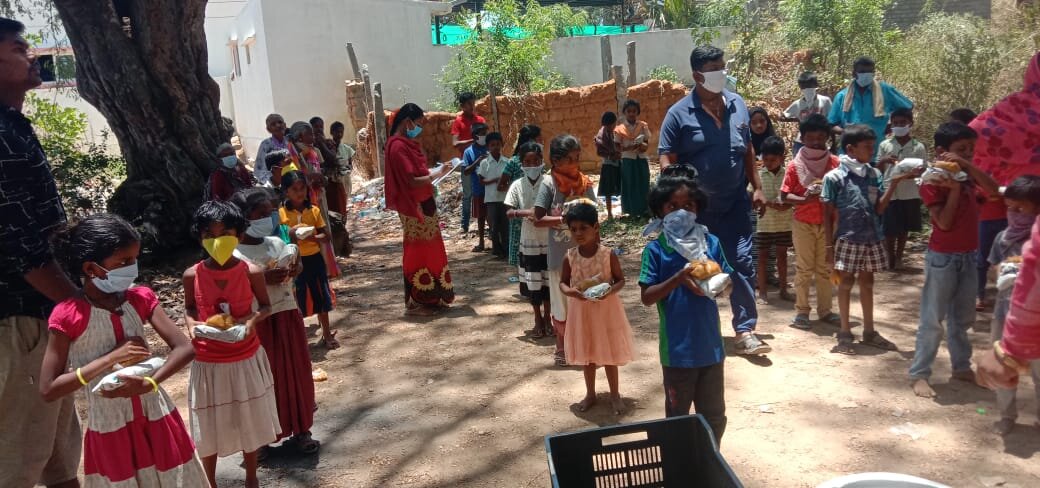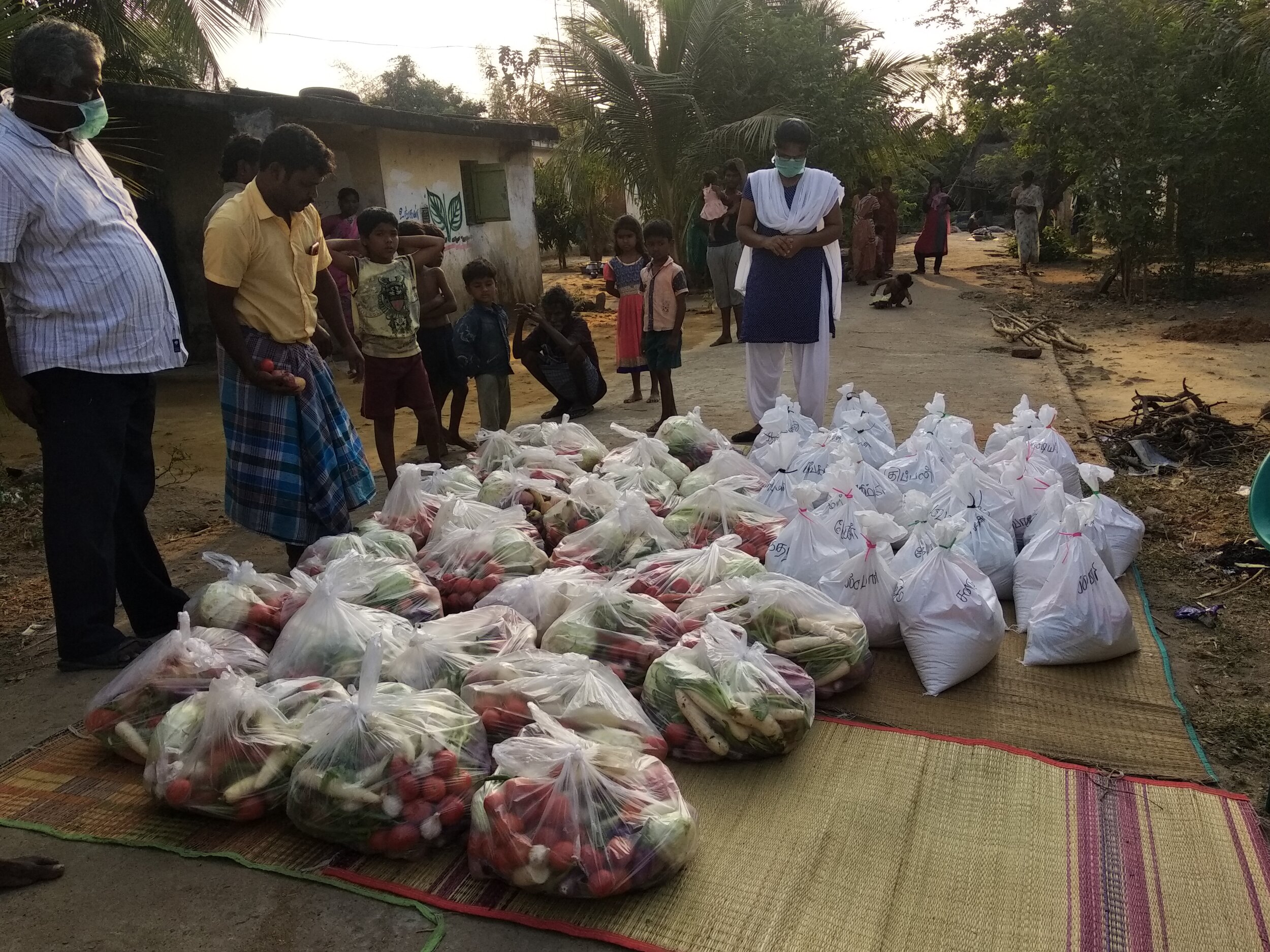COVID-19 UPDATE - Thank you to donors - An update
Children receiving food supplies and cooked meals in rural poor village
First of all, I would like to thank you all most warmly for contributing to our emergency appeal. The response has been both rapid and generous and the total has now passed £25,000. This is a remarkable achievement and it means that we can provide our three partner organisations with significant extra funding for food and other relief. So far we have distributed over £10,000 of the appeal money as we know that the need is not going to go away any time soon.
The situation in the Rural Villages
Villagers are still being asked to stay at home for the time being and the situation will be reviewed by the central government later this week. There has been a partial easing of the total lockdown with essential shops being free to open. Agricultural workers are now allowed to work outside but this is high summer and there is little seasonal work available. Additionally, all trains and buses are still banned and schools remain shut and are unlikely to re-open until September at the earliest.
Many families live in small huts and shacks sometimes with a floor space of no more than 120 square feet. So, for them, the strict lockdown rules, ruthlessly enforced by the police, have been very difficult.
The rate of infection in the villages is small and where it occurs the patients are immediately taken into quarantine. Nearly all the virus hotspots are in the big cities and towns, but it is hard to see how the virus will not spread more into the rural areas. If it does to any great degree, the meagre and unsatisfactory government health care system is likely to be overwhelmed and the consequences will be serious. There is great fear among the villagers that this may happen.
The biggest problem facing the rural poor is hunger or the threat of it. The government is providing basic food for the majority of the rural population, but it can be of poor quality and it is barely sufficient. For the minority who do not have government ration cards, the situation is bleak. They have no entitlement to government aid nor money to buy food. This is where the biggest need is, and it is where most of the emergency appeal money is going.
The local government officials are cooperating very well with our partner organisations and encouraging their work in the villages. Our partners are now allowed to use their vehicles to visit villages and distribute food and other essential commodities such as face masks and soap.
The Work of our Partner Organisations
CRUSADE
Situated to the north of Chennai and working in over 200 villages Crusade is providing grocery packs to 500 of the very poorest and disadvantaged families. Twenty-litre bottles of Reverse Osmosis clean water are also being distributed.
Following an official state government suggestion, Dr Vasanth, the Crusade Medical Officer, is providing a homoeopathic remedy (Arsenicum Album 30% potency) for staff and other members of the communities. There has been some evidence that this remedy can act as a preventative measure by enhancing the immune system.
CRUSADE Dr. Vasanth, distributing homeopathic remedies to rural poor members of a village
MASARD
Situated some 50kms south of Bangalore are also targeting the poorest families who are most in need. The main food relief effort is to provide a daily Community Kitchen in each of the fifteen villages they serve. These kitchens, run by the part time village Animator, provide a cooked meal packet for two. Some 1500 of these packets are distributed each day to the neediest. Masard have also distributed large grocery kits to 180 of the most deserving families. This food is enough for two weeks.
MASARD - Women in rural village receiving food supplies
CARE
Care supports four villages that make up the Landor begging community and 28 of our sponsored children come from these villages. None of these families have government ration cards and they are unable to beg so they have no income. As a result, CARE is providing food to these families via a community kitchen and basic food packs.
CARE - Food supplies ready for distributing to members of the begging community
There is much we still do not know about this virus. Nobody can yet explain why there has not been a rapid spread of the virus in the developing world. Does this mean that these countries will be less affected or are they only at the beginning of a widespread epidemic? Only time will tell but what we do know is that there is a very present real threat of hunger in the villages that we support. With your generous help, we have been able to provide relief to those most in need.
It costs £1 per day to feed 2 families. £10 will feed 100 people. £100 will feed 6 families for a month.
With many thanks,
Murray Frankland
Managing and Founding Trustee














